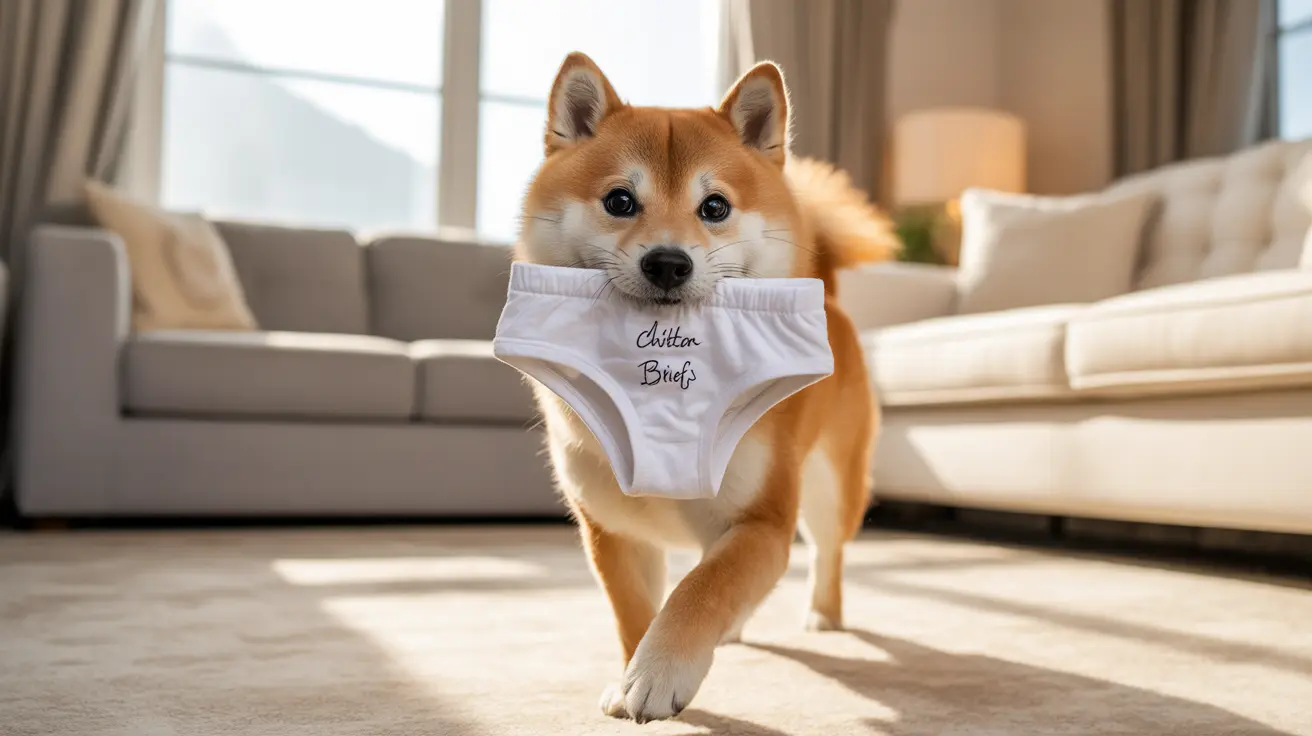If you've ever caught your dog raiding your laundry basket or proudly prancing around with your undergarments, you're not alone. This seemingly embarrassing behavior is actually quite common among our canine companions. Let's explore the fascinating scientific reasons behind why dogs like underwear and what you can do about it.
Understanding this behavior requires delving into dogs' incredible sense of smell, their emotional bonds with owners, and their natural instincts. While it might seem gross or funny to us, there are actually several legitimate biological and behavioral reasons driving this peculiar attraction.
The Power of Scent: Why Dogs Are Drawn to Underwear
Dogs possess an extraordinary sense of smell that's up to 100,000 times more powerful than humans. Your underwear carries concentrated versions of your unique scent markers, including pheromones and natural body oils, making them particularly fascinating to your dog's sensitive nose.
This attraction to scent isn't random - it's deeply rooted in your dog's need for connection and security. Strong familiar scents can provide comfort and reassurance, especially when you're away from home.
Emotional and Behavioral Motivations
Comfort and Security
For many dogs, having access to items with their owner's scent provides emotional comfort. This is particularly true for dogs with separation anxiety or those experiencing stress. Your underwear essentially serves as a security blanket, carrying the most concentrated version of your scent.
Attention-Seeking Behavior
Some dogs learn that grabbing underwear results in an immediate reaction from their owner. Whether that reaction is positive or negative, the attention itself can reinforce the behavior, creating a cycle that's hard to break.
Health Risks and Concerns
While this behavior might seem harmless, it can pose serious health risks. Dogs who chew or swallow underwear may face:
- Intestinal blockages requiring surgery
- Choking hazards
- Dental injuries
- Exposure to harmful bacteria
Prevention and Training Solutions
Management Strategies
The most effective approach is prevention through proper management:
- Keep laundry in closed hampers or behind closed doors
- Use elevated laundry baskets
- Store clean underwear in drawers or closets
- Maintain a tidy environment
Positive Training Approaches
Redirect your dog's attention to appropriate items:
- Provide engaging chew toys
- Use interactive puzzle toys
- Establish consistent exercise routines
- Practice "leave it" and "drop it" commands
Frequently Asked Questions
Why do dogs like to chew or steal their owner's dirty underwear?
Dogs are attracted to their owner's dirty underwear primarily because of the concentrated scent markers present in these items. This behavior is driven by their powerful sense of smell and their emotional connection to their owners.
How does a dog's sense of smell influence their attraction to underwear?
A dog's sense of smell is incredibly powerful, allowing them to detect the concentrated pheromones and body scents in underwear. These scents provide information about their owner and can be comforting or interesting to dogs.
Can chewing or eating underwear be harmful to my dog's health?
Yes, chewing or eating underwear can be very dangerous for dogs. It can lead to serious intestinal blockages requiring emergency surgery, choking hazards, and potential exposure to harmful bacteria.
What causes puppies to be more likely to chew on underwear than adult dogs?
Puppies are more likely to chew underwear due to teething, natural exploration of their environment, and not yet having learned appropriate chewing behaviors. They're also more prone to oral fixation during development.
How can I stop my dog from eating or chewing on my underwear safely?
To prevent this behavior, keep underwear out of reach, provide appropriate chew toys, maintain regular exercise routines, and use positive reinforcement training. If the behavior persists, consult with a veterinary behaviorist.
Understanding why dogs like underwear helps us address this behavior more effectively while maintaining our bond with our pets. Remember that while this habit might be embarrassing, it's a natural behavior that can be managed with proper training and environmental management.






